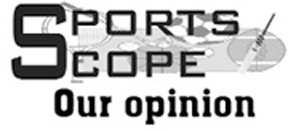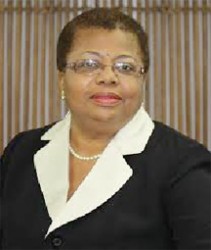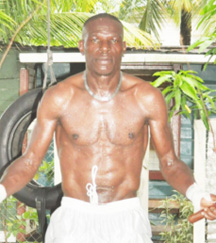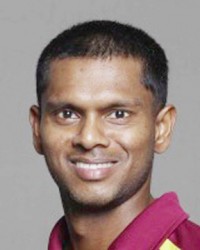Says Donald Duff
Just about a year ago then Deputy Secretary-General of the Caribbean Community (CARICOM) Lolita Applewhaite, in her address at the opening ceremony of the 17th Special Meeting of the Council for Human and Social Development with a focus on sport held at the CARICOM Secretariat in Guyana, said that sport should be one of the tools used to boost economic activity in the region.
“The business of sport must be pursued vigorously, and this must be done with a serious dialogue among stakeholders —— governments;  the private sector; sport organizations; academia and the sportsmen and women,” said Applewhaite.
the private sector; sport organizations; academia and the sportsmen and women,” said Applewhaite.
She argued that sport be developed and treated as part of the tradable sector and be re-positioned to contribute to the sustainable livelihood of the Region’s peoples.
Applewhaite suggested that healthy lifestyles through physical activity could lessen the burden on regional economies and admitted that while much work had been done in the Region for the advancement of sport, there was still much more to be done to ensure that:”sport is transitioned from a mere pastime to a valuable feature of our societies.”
Like most such discourses, Applewhaite’s message seems to have been lost on the major players of sports in our society and it is hardly likely that anything will be done following her retirement earlier this year after a decade of service to CARICOM.
One of the ironies in the life of an athlete in Guyana is that you often have to produce superlative performances before you are rewarded or even given some form of assistance.

In other countries you are given assistance once it is clear that you have the potential to do your country proud and you are also rewarded once you would have won medals at games such as the Olympics. Some countries provide financial assistance to sports heroes until their demise.
Shivnarine Chanderpaul, Andrew `Sixhead’ Lewis, Wayne Braithwaite, Gumendra Shewdas and others all achieved success through dint of hard work before being handsomely rewarded once they had achieved international stardom.
In the case of Chanderpaul, in a time when there were no bowling machines, he probably used the old-fashioned method of placing a cricket ball in a stocking, hanging it from the rafters, and then hitting it over and over again in an effort to perfect his craft.
Lewis’s talent was evident since he was young but like Terrence Ali before him, he was forced to gravitate to greener pastures and campaigned in the USA before he was ultimately able to land that coveted title shot against James Paige and the rest, as they say is history.
In some countries super athletes otherwise known as elite athletes, are identified and benefit from training programmes and cash funding to enable them to medal at some of the major championships in the world.
Oftentimes these programmes are funded by some of the biggest companies in the world like Nike.
In Guyana, not so!
This is why a recent initiative by two companies who have over the years demonstrated their unquestioned support for sportsmen and women must be commended.
Banks DIH Limited and Giftland OfficeMax recently decided to have some of the country’s top athletes represent their brands.
Giftland chose bodybuilder Kerwin Clarke as its Brand Ambassador for one year while Banks DIH chose Ashley de Groot (squash), Christine Sukhram (golf), Neil Reece (cycling), Soroya Simmons (swimming) and Stefan Corlette (table tennis) to represent their brands.

In some ways the approach is similar to what is practiced in the USA and other countries where products such as “Wheaties” are endorsed by sportsmen and women such as LeBron James, Serena Williams, Kobe Bryant, Tiger Woods and others.
The major difference is that James, Williams, Bryant, Woods and company are paid handsomely to have their names associated with the products.
The recent initiative by Giftland and Banks DIH is more aimed at helping Guyana’s budding athletes reach their true potential by assisting them in whatever way the companies can.
It is hoped that more companies follow this initiative.
But it is not only those two companies who should be commended.
For years telecommunications providers Digicel and the Guyana Telephone and Telegraph Company (GT&T) have been assisting in sponsoring tournaments, national teams, national players and such like.
Beverage companies like Demerara Distillers Limited, Ansa Mc Al, the Guyana Beverage Company and others have also assisted with sponsorship.
Even the GOA has jumped on the bandwagon and on Sunday not only held an Appreciation Dinner for the athletes who participated at the recent South American Youth Games and the Islamic Games but also rewarded financially those athletes who won medals.
Even though the athletes might have wanted the assistance prior to competing the saying `better late than never’ might be apt here.
The GOA even donated sums of money to the Guyana Rugby Football Union and the Guyana Cycling Federation.

In the case of the GRFU, their rugby teams have dominated the NACRA Sevens tournaments yet their pleas for sponsorship to play in this year’s tournament seems to have fallen on the deaf ears of the government.
Why is the Ministry of Sport not assisting the GRFU whose teams have done this country proud over the years is anyone’s guess?
In Guyana there is need for the government to play a greater role in helping our talented athletes reach their potential and this must be addressed by more collaboration between the Ministry of Culture, Youth and Sport, the Guyana Olympic Association and the national associations/federations.
Simply put it is time that all national sports teams that are going to represent this country receive assistance from the government. The onus of funding teams must not be placed on the business community alone. This must stop.
National teams are just that. They represent the people of this country and as such the government should play its role in assisting national sports teams to participate in international competitions and the monies for this must be allocated in the budget. It is as simple as that.
There should also be moves to identify elite athletes to receive funding from the government and the GOA or both with a long term view of winning medals at future games such as the Olympics.
Sports associations too must play their part by being properly structured to enable the transparency, democracy and accountability necessary for good governance and the government should play a watchdog role in ensuring that the sports association/federations operate within the framework of their constitutions so as to reduce the instances of unfair play/practices which are oftentimes numerous but well hidden.









